Today Current Affairs: 12th May 2021 for UPSC IAS exams, State PSC exams, SSC CGL, State SSC, RRB, Railways, Banking Exam & IBPS, etc
Table of Contents
Indian Renewable Energy Development Agency:
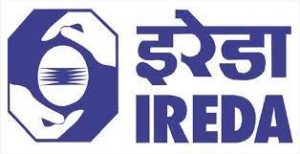
Indian Renewable Energy Development Agency Ltd. IREDA has been conferred with the “Green Urja Award” for being the Leading Public Institution in Financing Institution for Renewable Energy this year by the Indian Chamber of Commerce
- Indian Renewable Energy Development Agency Limited (IREDA) is a Mini Ratna (Category – I) Government of India Enterprise under the administrative control of the Ministry of New and Renewable Energy (MNRE).
- IREDA is a Public Limited Government Company established as a Non-Banking Financial Institution in 1987.
- IREDA has been notified as a “Public Financial Institution” under section 4 ‘A’ of the Companies Act, 1956, and registered as a Non-Banking Financial Company (NFBC) with Reserve Bank of India (RBI). IREDA’s Motto is “Energy for Ever.”
- IREDA is the only dedicated institution for financing Renewable Energy (RE) & Energy Efficiency (EE) projects in India.
- Since its inception, the company has played a catalytic role in developing a market for financing RE & EE projects.
- IREDA has over the years sanctioned loans aggregating to Rs. 96,601 crores, disbursed Rs. 63,492 cores and supported more than 17,586 MW of RE capacity in the country to date.
National Technology Day: May 11, 2021:

National Technology Day was observed in India on May 11, 2021.
- The day is celebrated every year on the 11th of May to highlight the achievements of engineers and scientists in the field of technology and science.
- Former Prime Minister Late Atal Bihari Vajpayee coined this term to celebrate the contributions made by Indian scientists.
- This day marks the anniversary of the 1998 Pokhran nuclear tests, which gave India a new strength and presence across the globe.
OSIRIS-REx: NASA:

On May 11, NASA’s Origins, Spectral Interpretation, Resource Identification, Security, Regolith Explorer (OSIRIS-REx) spacecraft will depart asteroid Bennu, and start its two-year long journey back to Earth.
- Bennu is an asteroid located about 200 million miles away from the Earth.
- Bennu is named after an Egyptian deity. The asteroid was discovered by a team from the NASA-funded Lincoln Near-Earth Asteroid Research team in 1999.
- Bennu is a B-type asteroid, implying that it contains significant amounts of carbon and various other minerals.
- Bennu is considered to be an ancient asteroid that has not gone through a lot of composition-altering change through billions of years, which means that below its surface lie chemicals and rocks from the birth of the solar system.
- Therefore, scientists and researchers are interested in studying this asteroid as it might give them clues about the origins of the solar system, the sun, the Earth and the other planets.
OSIRIS-Rex:
- OSIRIS-REx is NASA’s first mission to visit a near-Earth asteroid, survey its surface and collect a sample from it.
- The mission is essentially a seven-year-long voyage and will conclude when at least 60 grams of samples are delivered back to the Earth.
- The mission promises to bring the largest amount of extra-terrestrial material back to our planet since the Apollo era.
- The mission was launched in 2016, it reached its target in 2018 and since then, the spacecraft has been trying to match the velocity of the asteroid using small rocket thrusters.
- It also utilized this time to survey the surface and identify potential sites to take samples.
- The spacecraft contains five instruments meant to explore Bennu including cameras, a spectrometer and a laser altimeter.
National Human Rights Commission (NHRC):
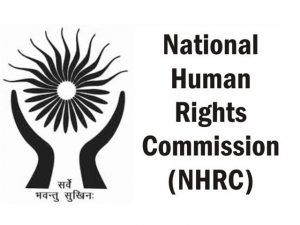
Justice Prafulla Chandra Pant, a former Supreme Court judge, has been appointed the Acting Chairperson of the National Human Rights Commission (NHRC) with effect from April 25, the commission said.
- NHRC was established in 1993. It is in conformity with the Paris Principles, adopted at the first international workshop on national institutions for the protection of human rights held in Paris in 1991.
- It is a statutory organization established under the Protection of Human Rights Act (PHRA), 1993.
- It is headquartered in New Delhi.
- The purpose of the NHRC is, suo moto or through the petition of a person, to investigate the violation of human rights or the failures of the state or other to prevent a human rights violation.
- The commissions may also take on research about human rights, create awareness campaigns through various mediums, and encourage the work of NGOs.
- The Commission consists of a Chairperson, four full-time Members, and four deemed Members.
- The statute lays down qualifications for the appointment of the Chairperson and Members of the Commission. A Chairperson should be retired Chief Justice of India.
- Justice Pant was appointed a member of the NHRC on April 22, 2019.
- The post of Chairperson has been vacant since the former Chief Justice of India H.L. Dattu completed his tenure on December 2.
Sheikh Zayed Book Award:

Prominent German philosopher Juergen Habermas had turned down the Sheikh Zayed Book Award over its ties “with the existing political system” in the UAE, a hereditarily ruled country long criticized for its suppression of dissent.
- The Sheikh Zayed Book Award is a literary award begun in the UAE.
- The award is named after Sheikh Zayed bin Sultan Al Nahyan, the first president of the UAE when the federation of seven sheikhdoms became a country in 1971.
- While describing itself as an “independent” initiative, the prize is administered by Abu Dhabi culture and tourism authorities.
- The “Cultural Person of the Year” is the premier category, it includes an award of one million Dirhams (around $300,000) while the other categories receive around $200,000 each.
- Habermas was named the Cultural Personality of the Year, a distinction that carries a cash prize of 1 million dirhams.
- Habermas’ influential writings on human rights, morality and democracy, among other topics, have stirred debate in Germany and beyond.
China’s seventh census:

China’s seventh census, a once-in-a-decade population census, was conducted recently.
Key findings:
- 12 million babies were born last year, the lowest number since 1961, a year when China was in the midst of a four-year famine unleashed by Mao Zedong’s Great Leap Forward policy in 1958 that devastated the farm sector and claimed millions of lives.
- China’s population was 1.41 billion in 2020, increasing by 72 million since the last census in 2010, recording a 5.38% growth in this period. The average annual growth was 0.53%.
- The census recorded a slowing population growth rate that will likely see China’s population peak — and be overtaken by India’s — by as early as 2025.
- The slowing growth rate is a consequence of China’s stringent family planning rules over decades — known as the “one-child policy”.
- It has evoked concerns of a rapidly ageing society and the impact on China’s labour force, and fears that China will, as some experts have said, “get old before it gets rich”.
- The impact on the labour force and healthcare is a particular concern.
Decentralized Triage and Emergency Response (DETER) Committees: Karnataka:
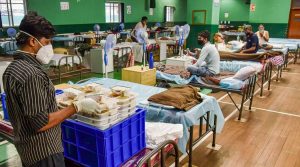
To manage the Covid pandemic at the local level, the Karnataka state government has formed Decentralized Triage and Emergency Response (DETER) Committees at ward levels in Bengaluru.
About DETER committees:
- The objective is to strengthen government response and management of the coronavirus pandemic.
- These teams will emphasize the distribution of localized action in a decentralized system of disaster response.
- They will be run in synergy with officials, ward committee members, government officers, representatives of the peoples, volunteers from resident welfare associations, civil society organizations, and disaster-support initiatives.
- They will act as the first point of contact for those infected with Covid-19.
- The Karnataka government has formulated a ‘3E Strategy’ for WDCs to micromanage Covid-19 in a comprehensive manner.
- The 3E Strategy is explained as follows: Efficient admission to hospitals facilitated by community triage services; Efficient discharge from hospitals enabling efficient bed-turnover; Empowering hospitals, doctors, and their management with supportive supervision.
- This is expected to improve supervision for better ward-level Covid governance.
MLA-LAD Scheme:
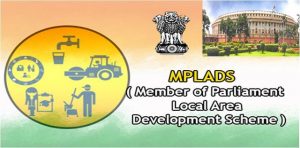
Rajasthan Government has approved a proposal to provide Rs. 3 crore each from the MLA Local Area Development (LAD) Fund to mobilize resources for Covid-19 Vaccination of the people in the age group of 18 to 44 years.
- For meeting the expenses, the fund for each legislator has been increased from Rs. 2.25 crore to Rs. 5 crore a year.
Members of Legislative Assembly Local Area Development (MLA-LAD) Scheme:
- It is the States’ version of a central government scheme – Members of Parliament Local Area Development Scheme (MPLAD).
- The objective of this scheme is to create local need based infrastructure, to create assets of public utility and to remove regional imbalances in development.
- This scheme is implemented in rural areas as well as urban areas of a state.
- MLAs do not receive any money under this scheme.
- The government transfers it directly to the respective local authorities.
- The legislators can only recommend works in their constituencies based on a set of guidelines.
- Amounts per MLA vary across the states. Delhi has the highest allocation under MLALAD; each MLA can recommend works for up to Rs. 10 crores each year.
- The guidelines for use of MLA-LAD funds differ across states.
- After the legislators give the list of developmental works, they are executed by the district authorities as per the government’s financial, technical, and administrative rules.
Members of Parliament Local Area Development Scheme (MPLAD):
- It is a Central Sector Scheme.
- It was announced in December 1993 and initially came under the control of the Ministry of Rural Development.
- Later, in October 1994, it was transferred to the Ministry of Statistics and Programme Implementation.
- Each year, MPs receive Rs. 5 crores in two installments of Rs. 2.5 crore each. Funds under MPLAD Scheme are non-lapsable.
- Objective:
- To enable MPs to recommend works of developmental nature with emphasis on the creation of durable community assets based on the locally felt needs to be taken up in their Constituencies.
- Lok Sabha Members can recommend works within their constituencies and elected Members of Rajya Sabha can recommend works within the State they are elected from.
- Nominated Members of both the Rajya Sabha and Lok Sabha can recommend works anywhere in the country.
- To create durable assets of national priorities viz. drinking water, primary education, public health, sanitation, and roads, etc.
- Since June 2016, the MPLAD funds can also be used for implementation of the schemes such as Swachh Bharat Abhiyan, Accessible India Campaign (Sugamya Bharat Abhiyan), conservation of water through rainwater harvesting and Sansad Aadarsh Gram Yojana, etc.
- The Union Cabinet has given its nod to the temporary suspension of MPLAD Funds during 2020-21 and 2021-22 in view of the adverse impact of the outbreak of Covid-19 in India.
The 4th India-Swiss Financial Dialogue:
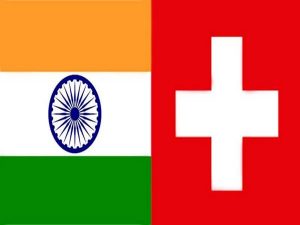
The 4th India-Swiss Financial Dialogue was held virtually through video conferencing.
Highlights from the Dialogue:
- Talks for collaboration on various aspects including investments, International Financial Services Centre Authority (IFSCA), National Investment and Infrastructure Fund (NIIF), FinTech, sustainable finance and cross border financial services.
- The matters relating to G20, the International Monetary Fund (IMF), and tax challenges arising from the digitalization of the economy were discussed along with infrastructure financing.
- Emphasized the importance of coordinated bilateral action on a clean and resilient post-Covid world.
India-Switzerland Relations:
- A Treaty of Friendship between India and Switzerland was signed in New Delhi in 1948.
- India’s policy of non-alignment and Switzerland’s traditional policy of neutrality has led to a close understanding between the two countries.
- India-Switzerland Bilateral Investment Treaty (BIT) is under negotiation.
- Negotiations are also taking place on India-EFTA Trade & Economic Partnership Agreement (TEPA).
- The European Free Trade Association (EFTA) is the intergovernmental organization of Iceland, Liechtenstein, Norway, and Switzerland.
- These countries are not part of the European Union (EU) with which India is negotiating a separate trade agreement called the India-EU Broad-based Trade and Investment Agreement.
Beema Bamboo:
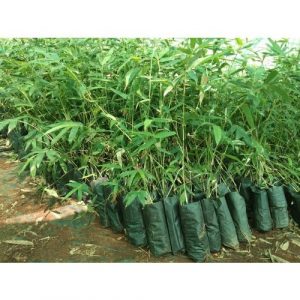
The Tamil Nadu Agricultural University (TNAU) has designed an ‘oxygen park’ within its premises at Coimbatore with Beema Bamboo.
- Beema or Bheema Bamboo is a superior clone, selected from Bambusa balcooa, a higher biomass yielding bamboo species.
- This bamboo clone has been developed by the conventional breeding method.
- This species is considered to be one of the fastest-growing plants. It grows one-and-a-half feet per day under tropical conditions.
- It is said to be the best ‘carbon sink’ to mitigate carbon dioxide emissions.
Bambusa balcooa:
- Bambusa balcooa is a very large, thick-walled, clumping bamboo, growing up to a height of 25 metres, and a thickness of 150 millimetres.
- The length and strength of Bambusa balcooa make it a useful material for the construction industry.
It is a drought-resistant species with low rainfall requirements and can reach yields upwards of 100 metric tons per hectare. - Importance:
- Permanent Green Cover: As it is sterile, this bamboo does not produce any seed and does not die also for several hundred years and keeps growing without death. As a result, this particular bamboo species is able to establish permanent green cover.
- Does Not Require Replanting for Decades: Since the plants are produced through tissue culture, the culms grow almost solid and adapt to different soil and climatic conditions. After every harvest cycle, it re-grows and does not require replanting for decades. A culm is the hollow stem of a grass or cereal plant, especially that bearing the flower.
- Can Mitigate Global Warming and Climate Change: As its rhizome and root formation provide a strong foundation, the plant becomes robust against natural forces and plays a major role in mitigating global warming and climate change.
- Diverse Uses: The bamboo’s calorific value is equal to that of coal. Cement industries are buying this bamboo species for their boilers. Bamboo fibre is used by the textile industry for making fabric and garments. Experts from the Visvesvaraya National Institute of Technology (VNIT), Nagpur, are working on the design of crash barriers made of beema bamboo and coir.
SEBI:

The Securities and Exchange Board of India (SEBI) has proposed doing away with the concept of promoters and moving to ‘person in control.’
- It has also suggested reducing the minimum lock-in periods post a public issue for promoters and pre-Initial Public Offering (IPO) shareholders.
- SEBI is a statutory body established in April, 1992 in accordance with the provisions of the Securities and Exchange Board of India Act, 1992.
- The basic functions of the Securities and Exchange Board of India is to protect the interests of investors in securities and to promote and regulate the securities market.
Promoter:
- The meaning of ‘promoter’ and ‘promoter group’ is defined in Companies Act, 2013 and SEBI (ICDR) Regulations, 2018.
- Generally, a promoter conceives an idea for setting-up a particular business at a given place and performs various formalities required for starting a company.
- Promoter group includes:
- Any body corporate in which a group of individuals or companies or combinations thereof acting in concert, which holds 20% or more of the equity share capital in that body corporate and
- Such a group of individuals or companies or combinations thereof also holds 20% or more of the equity share capital of the issuer and is also acting in concert.
An issuer is a legal entity that develops, registers, and sells securities to finance its operations.
Promoter to Person in Control Concept:
- The shift is necessitated by the changing investor landscape in India where the concentration of ownership and control rights do not vest completely in the hands of the promoters or promoter group because of the emergence of new shareholders such as private equity and institutional investors.
- Investor focus on the quality of board and management has increased, thereby reducing the relevance of the concept of the promoter.
- The current definition focuses on capturing holdings by a common group of individuals or persons and often results in capturing unrelated companies with common financial investors.




